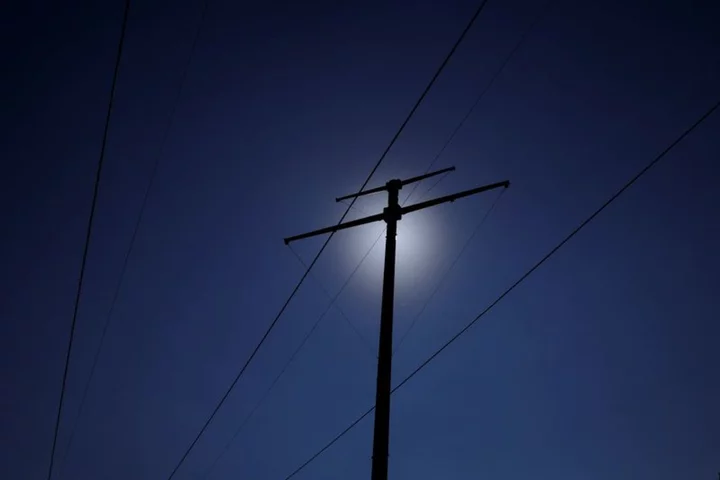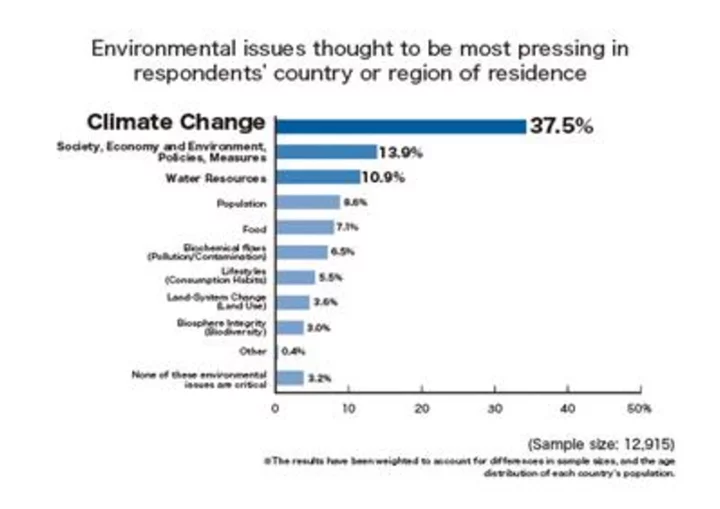By Valerie Volcovici and Timothy Gardner
WASHINGTON The bipartisan U.S. debt deal's provisions to speed up energy infrastructure permitting will make it easier to build fossil fuel and clean energy projects but failed to tackle the mammoth issue of building transmission and pipelines needed to get their production to consumers.
The Biden administration said the deal, announced over the weekend, would for the first time in years update the National Energy Policy Act, the decades-old law that guides the environmental permitting of major projects, to ensure its impact studies do not exceed two years.
That news cheered energy industry representatives that have long complained that NEPA studies are a huge headwind to fossil fuel and clean energy developments alike, often taking more than five years to complete.
Jason Grumet, president of American Clean Power, a renewable energy lobby group, said the debt ceiling agreement is an “important down payment on much-needed reforms to improve the efficiency of the permitting process.”
Fossil fuel industry groups like the Interstate Natural Gas Association of America and American Exploration and Production Council also called the deal a good first step toward reforming energy permitting.
"This bill sets the stage for more comprehensive permitting reform and is a positive step toward modernizing our permitting system and streamlining the bureaucratic process, which has been holding back America’s ability to build energy infrastructure for decades," said Anne Bradbury, CEO of AXPC.
The debt deal, however, left out some proposals that some energy groups had hoped for, including a measure that would have addressed electric transmission woes by requiring U.S. regions to have the capacity to transfer at least 30% of their peak electricity demand between each other.
Expanding power transmission is seen as crucial to President Joe Biden’s climate change agenda because it would allow far flung solar and wind energy projects, recently turbocharged by major legislation, to link their power to the grid.
Meanwhile, oil and gas companies and representatives of fossil fuel producing states, want their pipeline and other infrastructure projects to move more swiftly through the permit process instead of facing lengthy reviews and numerous legal challenges.
Building transmission lines and pipelines is also hard because local communities often do not want the projects, and federal and state authorities lack the power to easily overcome that opposition.
Instead, the deal orders a study by the North American Electric Reliability Corporation to assess how much transfer capacity is needed to strengthen grid reliability, something that would likely take two and a half years to get to Congress.
The deal also left some other thorny issues for future discussions, such as unlocking barriers to the siting and construction of new transmission projects that can enable fast deployment of renewable energy and judicial reform to prevent projects from being stalled during litigation.
Grumet said such reforms were crucial to build out the $150 billion investment in new clean energy projects announced over the last nine months since the passage of the Inflation Reduction Act, Biden’s landmark climate law.
“I think both sides want to come back to the table. I think it's one of those cases where cases where there are ways to get what you want and give the other side something that is not something you totally hate,” said Xan Fishman, energy policy and carbon management director at the Bipartisan Policy Center.
House Speaker Kevin McCarthy said on Tuesday that Republicans will continue to work with Democrats to pursue broader permitting reform - including pipelines and transmission.
"We will continue working with (the White House) and with Democrats across the way because we need energy — all forms of energy, especially for our grid to double in the next future," he said.
PIPELINE CONTROVERSY
The energy industry also welcomed the surprise inclusion of expediting permitting of the controversial Mountain Valley Pipeline, a pipeline that would carry gas produced in the Appalachian region championed by Democratic West Virginia Senator Joe Manchin, whose vote is often needed since the Democrats hold a thin majority in the Senate.
But it has angered environmentalists and some Democrats.
Virginia Senator Tim Kaine, for example, whose state it would run through, is floating amendments to remove it from the final bill and green groups are planning protests around it.
Some other Democrats were more broadly upset by the debt deal’s energy provisions.
“Moving forward, I urge my colleagues to see Republicans’ never-ending attack on NEPA for what it is — a decades-old, industry-funded partisan attack that hurts all of us, but especially poor people and people of color. Once again, polluter profit is the point,” said Raul Grijalva, the top Democrat on the House natural resources committee.
ClearView Energy Partners, a nonpartisan research group, said that Democrats could push for more concrete measures on transmission reform in future legislation, but said it could be hard without a catalyst, such as a major infrastructure failure that regulators traced to permitting delays.
(Reporting by Valerie Volcovici and Timothy Gardner; Editing by Marguerita Choy)









